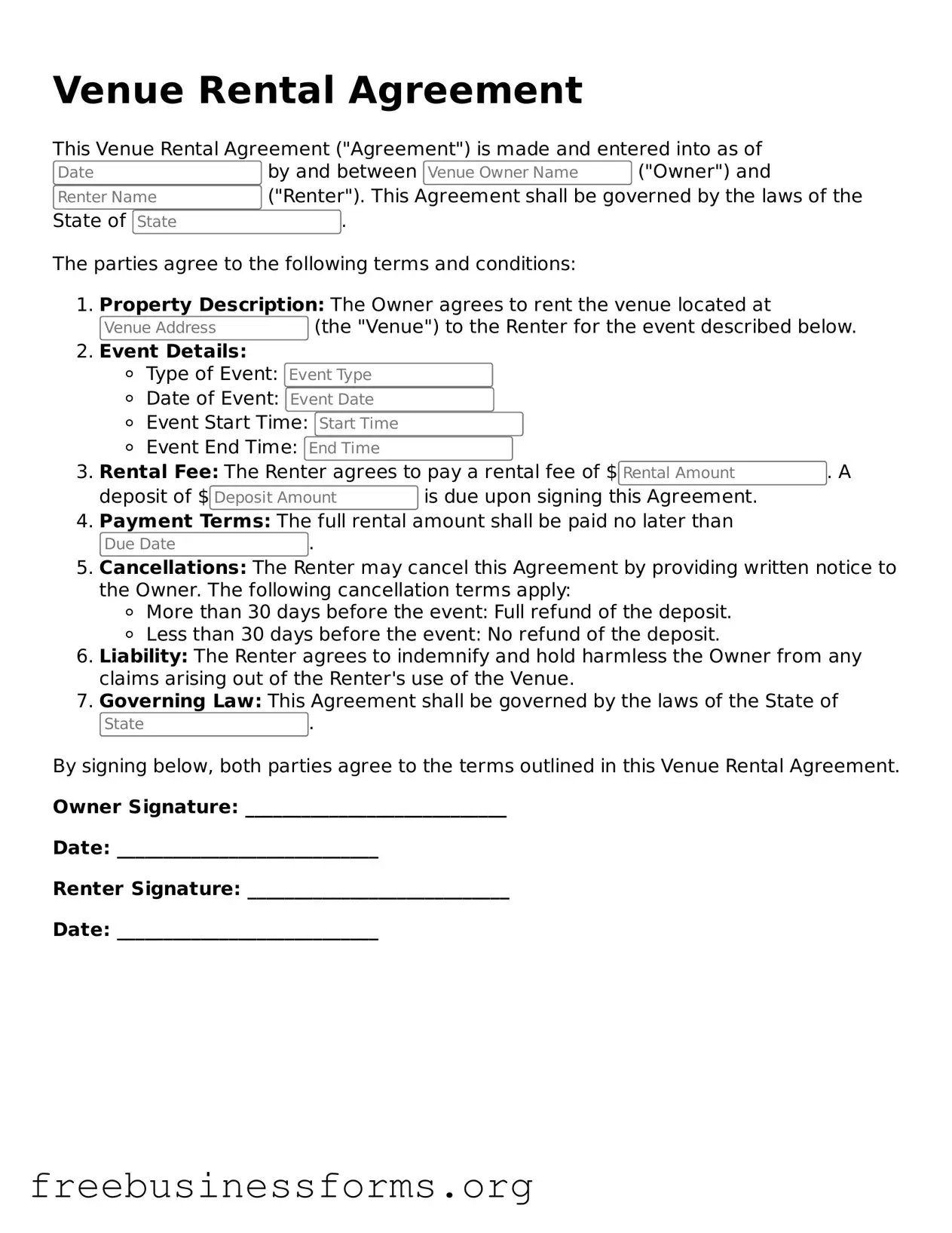Official Venue Rental Agreement Form
A Venue Rental Agreement is a legal document that outlines the terms and conditions for renting a space for events. This agreement protects both the venue owner and the renter by clearly stating responsibilities and expectations. Understanding this form is essential for a smooth and successful event planning experience.
Open Form Here

Official Venue Rental Agreement Form
Open Form Here

Open Form Here
or
↓ PDF File
Quickly complete this form online
Complete your Venue Rental Agreement online quickly — edit, save, download.